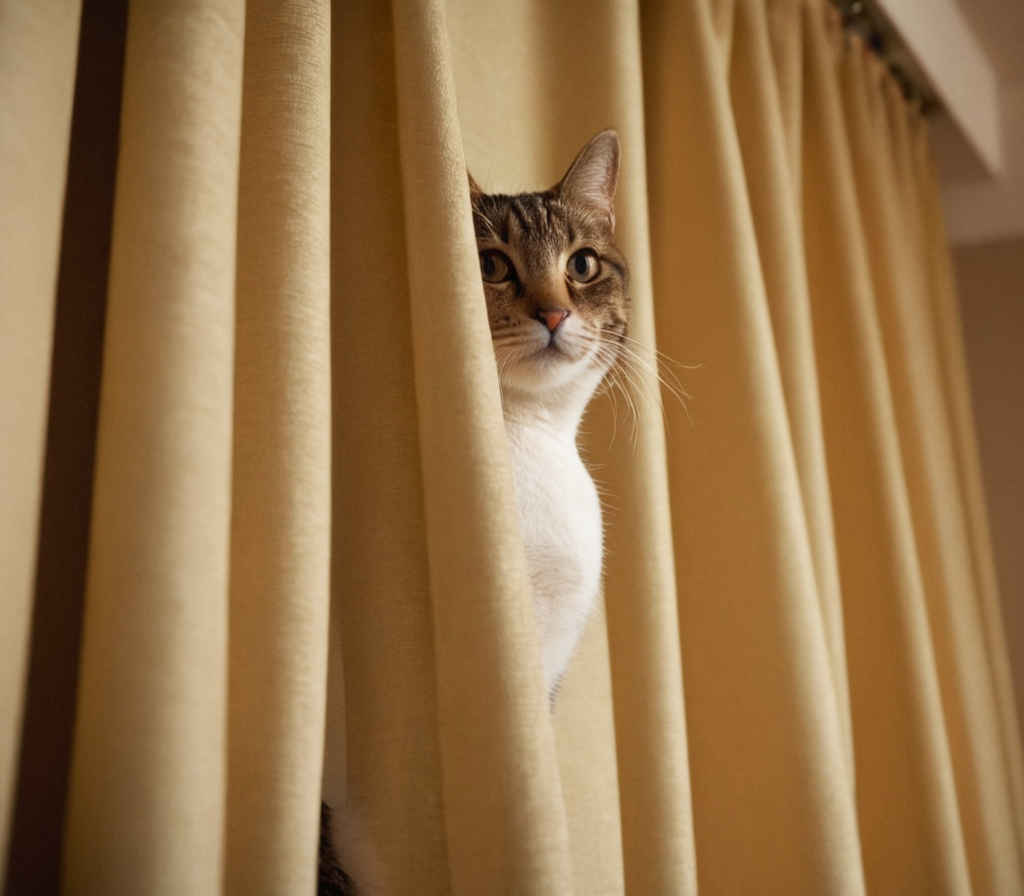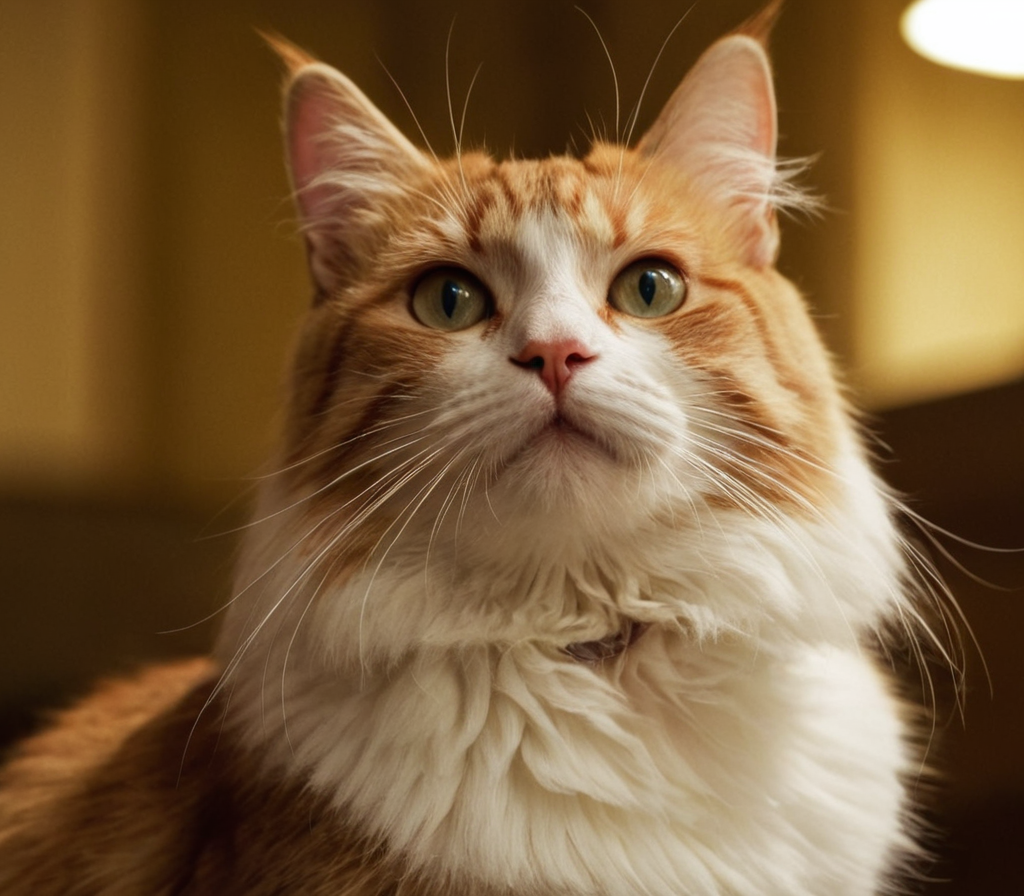1. Introduction to FVRCP Cat Vaccine
The FVRCP vaccine is a core vaccine that provides essential protection for cats against three major diseases: feline viral rhinotracheitis, calicivirus, and panleukopenia.
Table of Contents
These are serious, highly contagious diseases that can cause a range of health issues, from respiratory problems to life-threatening conditions. Given the risks, the FVRCP vaccine is recommended for all cats, whether they live indoors or outdoors.
Vaccinating your cat not only ensures their health but also helps prevent the spread of these diseases within the feline community. Cats are naturally curious creatures and may occasionally be exposed to other animals or environments where pathogens are present. In these situations, even indoor cats can be vulnerable.
Veterinarians, such as those at Poway Vets, emphasize the importance of this vaccine as it protects cats from a broad spectrum of health threats. The FVRCP vaccine is typically part of a routine wellness plan and plays a key role in safeguarding your pet’s health throughout their life.
What is the FVRCP vaccine?
The FVRCP vaccine is a combination vaccine, meaning it protects against multiple diseases with a single shot. FVR stands for feline viral rhinotracheitis, C represents calicivirus, and P stands for panleukopenia. These diseases can range in severity, with some leading to chronic health issues or even death. This vaccine is crucial, especially for young kittens, whose immune systems are still developing, as well as for adult cats that are at risk of encountering these viruses.
2. Benefits of the FVRCP Cat Vaccine
The FVRCP vaccine offers numerous benefits for cats, protecting them from three highly contagious and potentially deadly diseases. Vaccinating your cat with this combination shot helps to ensure that they can live a long and healthy life without the risks associated with viral infections. By receiving the FVRCP vaccine, your cat builds immunity against:

- Feline viral rhinotracheitis (FVR) – This virus is caused by the feline herpesvirus, which leads to severe respiratory issues, including sneezing, coughing, nasal discharge, and conjunctivitis. In some cases, this virus can remain dormant and recur during times of stress.
- Calicivirus (C) – Calicivirus is responsible for upper respiratory infections and oral diseases in cats. It can cause symptoms like sneezing, fever, and mouth ulcers, leading to difficulty eating and dehydration. Vaccination prevents severe forms of the disease, reducing the risk of chronic illness.
- Panleukopenia (P) – Also known as feline distemper, this virus is extremely dangerous, especially for kittens. It attacks the cat’s immune system and gastrointestinal tract, causing vomiting, diarrhea, and dehydration. Without vaccination, panleukopenia can be fatal, especially in young or unvaccinated cats.
Protection against feline viral rhinotracheitis (FVR)
Feline viral rhinotracheitis (FVR) is caused by a feline-specific herpesvirus. It is highly contagious and spreads through respiratory secretions, direct contact, or contaminated surfaces. Symptoms of FVR include coughing, sneezing, nasal and eye discharge, fever, and lethargy. In severe cases, the virus can lead to chronic respiratory issues, affecting your cat’s long-term health.
Vaccination is the best way to protect your cat from this persistent virus. While the vaccine does not guarantee complete immunity, it significantly reduces the severity of symptoms and prevents the spread of the virus. The FVR portion of the vaccine works by stimulating your cat’s immune system to recognize and combat the virus effectively, reducing the likelihood of serious illness.
3. Side Effects of the FVRCP Cat Vaccine
While the FVRCP vaccine is generally safe and provides life-saving benefits for cats, it may cause some side effects. Most of these are mild and short-lived, but in rare cases, more severe reactions can occur. It’s important to understand both the common and rare side effects to make an informed decision about vaccinating your cat.

Common side effects include mild lethargy, a slight fever, or temporary loss of appetite. These side effects are typical after many vaccines and usually subside within 24 to 48 hours. In some cases, a small lump may form at the injection site, but this typically resolves on its own.
More serious side effects are rare but can include allergic reactions, such as swelling of the face, difficulty breathing, or vomiting. If you notice any of these symptoms, it’s important to contact your veterinarian immediately for advice and possible treatment.
Common mild side effects
After receiving the FVRCP vaccine, it’s not uncommon for cats to experience mild side effects. These may include slight fatigue, soreness at the injection site, or reduced appetite for a day or two. These reactions are signs that the immune system is responding to the vaccine and building protection against the targeted viruses. Typically, these symptoms resolve on their own within a few days, and your cat should return to their normal behavior and energy levels without needing any intervention.
If your cat seems particularly lethargic or their appetite doesn’t return after 48 hours, it’s a good idea to consult your veterinarian for further advice. Although these symptoms are generally mild, keeping an eye on your cat’s behavior after vaccination ensures they’re comfortable and recovering properly.
4. How Often Should Cats Get the FVRCP Vaccine?
The FVRCP vaccine is administered to cats at specific intervals to maintain immunity throughout their lives. For kittens, the vaccine is typically given starting at six to eight weeks of age and is repeated every three to four weeks until they are about 16 weeks old. This schedule ensures that kittens develop a strong immune response while their immune systems are still maturing.
Adult cats that have completed their initial kitten series of vaccinations require booster shots to maintain immunity. Generally, a booster is given one year after the initial series and then every three years thereafter. This schedule helps ensure ongoing protection against the diseases covered by the FVRCP vaccine.
Recommended vaccination schedule for kittens and adult cats
The FVRCP vaccination schedule for kittens starts early in life, usually around six to eight weeks of age. Kittens need this early vaccination because their immune systems are not fully developed, and they are particularly vulnerable to infectious diseases. The vaccine is repeated every three to four weeks, until the kitten is 16 weeks old, to ensure robust immunity.
For adult cats, the first booster shot is typically given one year after the last kitten shot. After that, boosters are usually administered every three years. However, depending on your cat’s health status and lifestyle, your veterinarian may recommend a different schedule. Indoor-only cats may require fewer boosters, while outdoor cats might need more frequent vaccinations.

5. Is the FVRCP Vaccine Safe for All Cats?
The FVRCP vaccine is considered safe for most cats, including kittens, adult cats, and senior felines. However, certain factors may affect a cat’s suitability for vaccination, such as age, health status, and any underlying conditions. While the vaccine is crucial for protecting against serious diseases, it’s important to consult with your veterinarian to determine if it’s the best choice for your pet.
In rare cases, cats with compromised immune systems or certain medical conditions may need to avoid vaccination or follow a modified schedule. Your veterinarian will weigh the risks and benefits based on your cat’s individual health needs.
Special considerations for immunocompromised cats
For cats with weakened immune systems, whether due to illness or age, vaccination might require special precautions. Cats undergoing treatment for conditions like cancer or those with immune-suppressing diseases may not respond as effectively to vaccines or could experience heightened side effects. In these cases, your veterinarian might recommend delaying vaccination or using other methods to protect the cat’s health.
It’s essential to balance the need for protection against serious diseases with the cat’s overall well-being. In most cases, even immunocompromised cats can receive the FVRCP vaccine, but the timing and approach should be carefully managed under veterinary supervision.
6. Q&A on FVRCP Vaccine
How long does the FVRCP vaccine take to work?
After your cat receives the FVRCP vaccine, it typically takes about one to two weeks for their immune system to build up sufficient protection against the viruses. However, full immunity might not develop until the entire vaccine series is completed, especially in kittens who receive multiple doses.
Can an indoor cat skip the FVRCP vaccine?
Even indoor cats should receive the FVRCP vaccine. While they may have lower exposure to outdoor risks, viruses can still be carried into the home on shoes, clothing, or other pets. The vaccine ensures protection in case of accidental exposure.
How much does the FVRCP vaccine cost?
The cost of the FVRCP vaccine can vary depending on location and veterinary practice. On average, it ranges from $20 to $50 per dose. Some vet clinics offer wellness packages that include vaccines, which can make it more affordable.
7. Conclusion: Weighing the Benefits Against the Risks
In conclusion, the benefits of the FVRCP vaccine far outweigh the potential risks for most cats. This vaccine protects against three serious and potentially fatal diseases, ensuring that your cat can live a long, healthy life. While some side effects may occur, they are typically mild and manageable. It is always important to consult with your veterinarian to tailor the vaccination schedule to your cat’s individual needs. By staying informed and proactive, you can protect your feline companion from preventable illnesses and ensure their well-being for years to come.
Q&A Section Recap
The FVRCP vaccine is vital for protecting cats from highly contagious diseases. While the cost and schedule may vary, the protection it provides makes it a necessary part of any cat’s healthcare routine. Even indoor cats can benefit from vaccination, and side effects are typically mild. Always consult with your veterinarian for the best care plan for your pet.
Conclusion
Vaccinating your cat with the FVRCP vaccine is a key step in ensuring their long-term health. While side effects are possible, the life-saving benefits of protection against viral infections far outweigh any potential risks. This vaccine is a cornerstone of feline preventative care, offering essential protection for all cats, whether they live indoors or outdoors.




Pingback: What is a Cat Grass Grow Kit? - kittypety